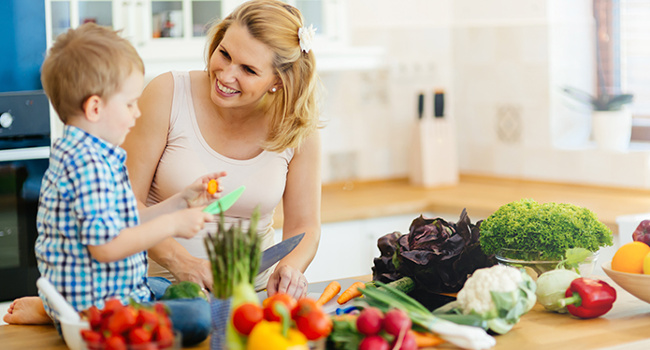
Although there are many positive stories emerging regarding plant-based eating for young people, there have been enough sensationalised news items regarding vegan diets harming children that many parents feel discouraged from attempting what science tells us is a very healthful approach to nourishing their kids.
Children grow more during the first two years than at any other time. The World Health Organisation recommends breastfeeding exclusively for the first six months of a child's life as the best way of meeting all her or his nutritional needs and boosting immunity and psychological wellbeing. Ideally breastfeeding continues well into the second year of life, with the breastmilk-to-other-food ratio gradually shifting until other foods make up the bulk of the child's nutrition.
The Physicians Committee for Responsible Medicine recommends introducing solid foods in the middle of the first year of life, slowly and carefully introducing new foods until a wide variety of fruits, vegetables, grains and legumes, then nuts and seeds are part of the diet.
You may notice that your vegan child grows more slowly, but it is worth knowing that final heights and weights are comparable to those on a non-vegan diet. Less rapid growth during infancy and childhood is correlated with reduced risk of disease in later life.
Non-vegan friends and family may "know" or be concerned about certain nutrients that your vegan child may be at risk of deficiency. So long as your child is receiving an adequate number of calories (ie, not starving), s/he will be having her or his protein needs met. Complex carbohydrates from whole grains, beans and vegetables provide the perfect fuel source combined with fibre. Healthy fats can come from soy products, avocados and nuts (ground and butter forms in infancy). Vitamin D is best obtained from 15 to 20 minutes of sunlight on the skin each day, but you may want to consider supplementation depending on the amount of pigment in the child's skin, or where you live. Also ensure you supplement with B12.
Low B12 levels can cause damage to the brain and growing nervous system. This is something that affects everyone, not just vegans, and it isn't something to ignore because supplementation "isn't natural". According to the Mayo Clinic, recommended dietary amounts (RDAs) are unavailable for children, but their adequate intake (AI) levels are: for infants 0-6 months old, 0.4 micrograms (AI); for infants 7-12 months old, 0.5 micrograms (AI); for children 1-3 years old, 0.9 micrograms; for children 4-8 years old, 1.2 micrograms; and for children 9-13 years old, 1.8 micrograms. Please read our article What every vegan should know about B12 for more information.
Your kids will be strongly influenced by the food choices you make. If you are following a varied and abundant plant diet, most likely so will they, even allowing for their natural curiosity and desire to sample whatever their friends are eating when they socialise.
The information in this article was adapted from the following sources, which are recommended for more information.
See also our article Veganism and pregnancy.

Unsubscribe at any time. Your details are safe, refer to our privacy policy.
© Vegan Australia | Registered as a non-profit charity by the ACNC | ABN 21 169 219 854